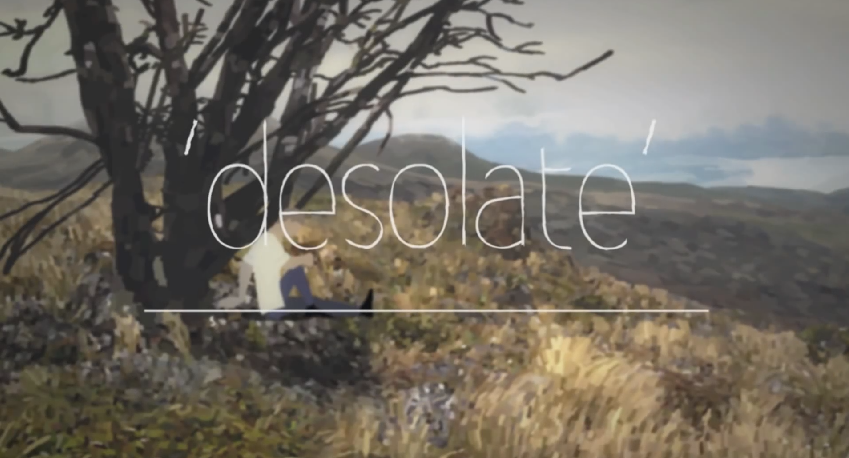A lot of the time video games don’t really focus much on emotion. We see tons of first person shooters with powerful protagonists who wouldn’t really know emotion if it blasted them with a rocket. To me, that makes any games that deal directly with emotion special by default. Elliot Collis’ desolate (stylized with no capitalization) has certainly gotten my attention with its description as an “adventure game influenced by my experiences, emotions, and my acceptance of self growing up.”
Players interact with desolate via three methods: touch, speech, and gesture. Touch is used to, well, touch. For example, you may shake someone’s hand via touch. Speaking can call creatures and people to pay attention to you. Gestures are similar in that they can motion others near. By utilizing these features the game will offer various puzzles and platforming. Thanks to the 2D hand-painted art style this game is reminiscent of others such as Flashback. Considering how important Flashback was to gaming history, this comparison is kind of a big deal.
One worrisome aspect is that desolate may be overreaching with its development plan. There are seven acts and the first of which is pegged for December launch. All backers over $12 NZD are promised access to every act. Episodic games always are a bit troubling since so many run out of steam before their conclusion, leaving players eternally hanging. In any case, desolate is set for PC (Windows, Mac, and Linux) release if it makes its goal of $12,500 NZD.
[divider][facebook][tweet][Google][pinterest][follow id=”Cliqist” size=”large” count=”true” ]






[…] it is : Marcus wrote: “A lot of the time video games don’t really focus much on emotion. We see tons of first […]